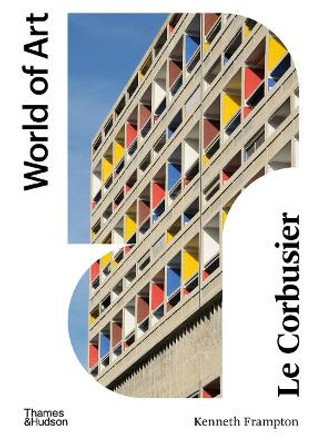Description
This book brings together Kenneth Frampton's essays from the 1960s to today which epitomize his reflections on the historical-theoretical entanglements of architecture with place, the public realm, cultural identity, urban landscape and environment, and the political question of the "predicament" of architecture in the new Millennium.
The essays explore Frampton's contention that architecture's imperative is to assume a significant responsibility for the edification and stewardship of the Arendtian 'public world.' One of the most theoretically sophisticated and politically committed architectural thinkers, Frampton's work breaks emphatically with the limits and norms of much contemporary practice and restores a sense of richness and social consequence of architecture's 'unfinished project,' while offering abiding lessons not only for architecture but for social, cultural, and design criticism alike.
Brings together key writings by the architectural critic Kenneth Frampton, paying particular attention to the political dimensions of Frampton's work.
About the Author
Kenneth Frampton is Ware Professor of Architecture at Columbia University, USA. He is the author of, amongst other works, Modern Architecture: A Critical History (1980: 4th edition, 2007; 5th edition in preparation), Modern Architecture in the World of Art series (5th edition, 2020), Studies in Tectonic Culture: The Poetics of Construction (1995), Labor, Work and Architecture (2002), A Genealogy of Modern Architecture: Comparative Critical Analysis of Built Form (2015) and The Other Modernism (2016: in Italian).
Miodrag Mitrasinovic is Professor of Urbanism and Architecture, and Co-Chair of Parsons Graduate Urban Programs, at Parsons School of Design, The New School, USA. He is the co-editor of Public Space Reader (2020), Public Space in a Chinese Megaregion: Contemporary Urban Practices and Design Strategies of the Greater Bay Area (forthcoming 2021), 'Cooperative Cities' (Journal of Design Strategies Vol. 8, 2018), editor of Concurrent Urbanities: Designing Infrastructures of Inclusion (2016), co-editor of Travel, Space, Architecture (2009), and author of Total Landscape, Theme Parks, Public Space (2006).
Reviews
Well-argued, well-grounded, well-written, these texts based on architectural practice, critique, and history reach beyond the particular discipline of architecture and the built environment. They touch all design professions that strive to make artifacts compatible with daily life practice in a fragile environment. Design, having become increasingly vaporous in recent years, needs a (re-)linking to the social-political domain confronting the "conflict between power and reason". -- Gui Bonsiepe, author of The Disobedience of Design
To those who have read him, and even to those who have not, the name Kenneth Frampton suggests an intellectual and ethical beacon in architecture. And like a beacon, Frampton has continued to cast light on some of the enduring and critical topics of our times. Perhaps similar to Rilke's letters to the young poet, Frampton's writings have alerted generations of architects, young and not so young, across the world, to abide by the cultural ethic of architecture, and compelled them to contemplate on what they do. -- Kazi Khaleed Ashraf, Director of the Bengal Institute for Architecture, Landscapes and Settlements, Bangladesh
By employing his deep understanding of the process of designing and crafting buildings, Frampton peels back the layers of a building to reveal its meaning, to understand its relevance, to evaluate its impact. He inhabits the world between thinking and doing, observing what is being done, capturing with incisive clarity the inner workings of projects, charting their equally possible outcomes. Just in case we might forget in this busy, digital world, Frampton reminds us that people's experience of architecture is of highest cultural importance. -- Yvonne Farrell and Shelly McNamara, Grafton Architects, Ireland
The wait is over. It is finally here! Kenneth Frampton, the revered British critic, finally sees his extensive body of work compiled in this benchmark volume, marking a significant epoch in architectural thought ... A must-read. * Domus *
Book Information
ISBN 9781350183780
Author Kenneth Frampton
Format Paperback
Page Count 400
Imprint Bloomsbury Visual Arts
Publisher Bloomsbury Publishing PLC







